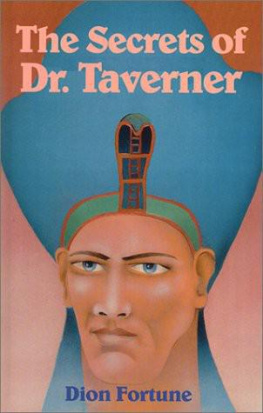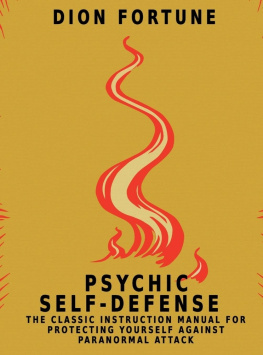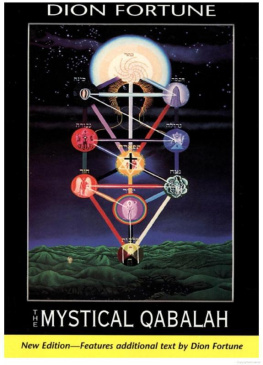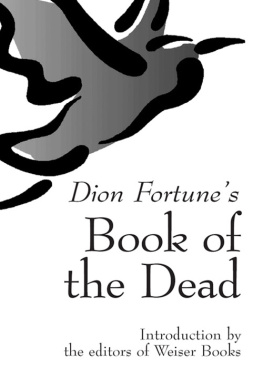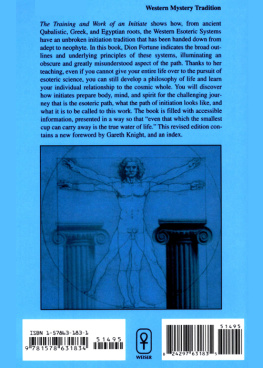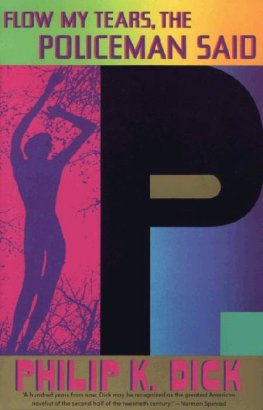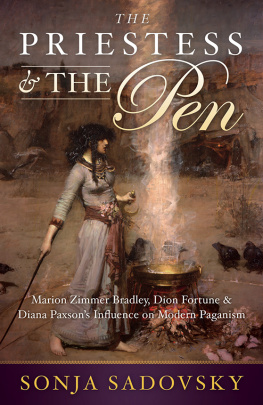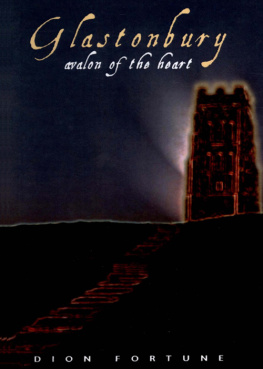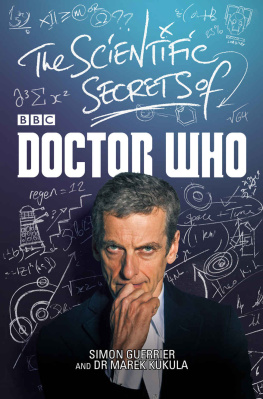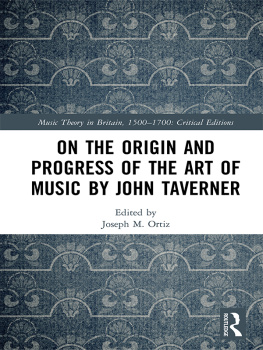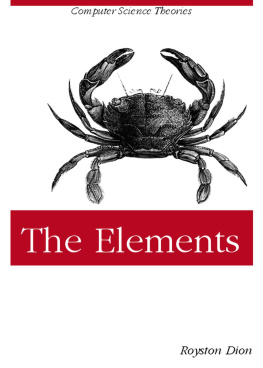Dion Fortune - The Secrets of Doctor Taverner
Here you can read online Dion Fortune - The Secrets of Doctor Taverner full text of the book (entire story) in english for free. Download pdf and epub, get meaning, cover and reviews about this ebook. year: 2011, publisher: Weiser Books, genre: Detective and thriller. Description of the work, (preface) as well as reviews are available. Best literature library LitArk.com created for fans of good reading and offers a wide selection of genres:
Romance novel
Science fiction
Adventure
Detective
Science
History
Home and family
Prose
Art
Politics
Computer
Non-fiction
Religion
Business
Children
Humor
Choose a favorite category and find really read worthwhile books. Enjoy immersion in the world of imagination, feel the emotions of the characters or learn something new for yourself, make an fascinating discovery.
- Book:The Secrets of Doctor Taverner
- Author:
- Publisher:Weiser Books
- Genre:
- Year:2011
- Rating:3 / 5
- Favourites:Add to favourites
- Your mark:
- 60
- 1
- 2
- 3
- 4
- 5
The Secrets of Doctor Taverner: summary, description and annotation
We offer to read an annotation, description, summary or preface (depends on what the author of the book "The Secrets of Doctor Taverner" wrote himself). If you haven't found the necessary information about the book — write in the comments, we will try to find it.
The Secrets of Doctor Taverner — read online for free the complete book (whole text) full work
Below is the text of the book, divided by pages. System saving the place of the last page read, allows you to conveniently read the book "The Secrets of Doctor Taverner" online for free, without having to search again every time where you left off. Put a bookmark, and you can go to the page where you finished reading at any time.
Font size:
Interval:
Bookmark:
MS@page { margin-bottom: 5.000000pt; margin-top: 5.000000pt; }
The Secrets of Dr. Taverner by Dion Fortune
Table of Contents
Editor's Preface i Introduction by Dion Fortune ii I Blood Lust 1 II The Return of the Ritual 22 III The Man Who Sought 41 IV The Soul That Would Not Be Born 57 V The Scented Poppies 69 VI The Death Hound 91 VII A Daughter of Pan 109 VIII The Subletting of the Mansion 133 IX Recalled 157 X The Sea Lure 172 XI The Power House 190 XII A Son of the Night 211 Dion Fortune Biography 239
The Secrets of Dr. Taverner
i
Introduction By Dion Fortune
These stories may be looked at from two standpoints, and no doubt the standpoint the reader chooses will be dictated by personal taste and previous knowledge of the subject under discussion. They may be regarded as fiction, designed, like the conversation of the Fat Boy recorded in The Pickwick Papers, "to make your flesh creep," or they may be considered to be what they actually are, studies in little-known aspects of psychology put in the form of fiction because, if published as a serious contribution to science, they would have no chance of a hearing.
It may not unreasonably be asked what motive anyone could have for securing a hearing for such histories as are set forth in these tales, beyond the not unreasonable interest in the royalties that usually fall to the lot of those who cater for the popular taste in horrors; I would ask my readers, however, to credit me with another motive than the purely commercial. I was one of the earliest students of psychoanalysis in this country, and I found, in the course of my studies, that the ends of a number of threads were put into my hands, but that the threads disappeared into the darkness that surrounded the small circle of light thrown by exact scientific knowledge. It was in following these threads out into the darkness of the Unknown that I came upon the experiences and cases which, turned into fiction, are set down in these pages.
I do not wish to imply by that, however, that these stories all happened exactly as set down, for such is not the case; they are, however, all founded on fact, and there is not a single incident herein contained which is pure imagination. That is to say, while no picture is an actual photograph, not one is an imaginary sketch; they are rather composite photographs, obtained by cutting out and piecing together innumerable snapshots of actual happenings, and the whole, far from being an arbitrary product of the imagination, is a serious study in the psychology of ultraconsciousness.
ii
I present these studies in super-normal pathology to the general reader because it has been my experience that such cases as I chronicle here are by no manner of means as uncommon as might be supposed, but, being unrecognized, pass unhelped. I have personally come across several instances of the Power House, some of which are well known to the members of the different coteries who are interested in these matters; "Blood-Lust" is literally true, and both these stories, far from being written up for the purposes of fiction, have been toned down to make them fit for print.
"Dr. Taverner" will no doubt be recognized by some of my readers; his mysterious nursing home was an actual fact, and infinitely stranger than any fiction could possibly be. It is a curious thing that the picture of him drawn from fancy by the artist who illustrated these stories for the Royal Magazine is a recognizable likeness, although that artist had neither seen a photograph nor had a description of him.
To "Dr. Taverner" I owe the greatest debt of my life; without "Dr. Taverner" there would have been no Dion Fortune,' and to him I offer the tribute of these pages.
--Dion Fortune, London.
********************
Blood Lust
I
I have never been able to make up my mind whether Dr. Taverner should be the hero or the villain of these histories. That he was a man of the most selfless ideals could not be questioned, but in his methods of putting these ideals into practice he was absolutely unscrupulous. He did not evade the law, he merely ignored it, and though the exquisite tenderness with which he handled his cases was an education in itself, yet he would use that wonderful psychological method of his to break a soul to pieces, going to work as quietly and methodically and benevolently as if bent upon the cure of his patient.
The manner of my meeting with this strange man was quite simple. After being gazetted out of the R.A.M.C. I went to a medical agency and inquired what posts were available.
I said: "I have come out of the Army with my nerves shattered. I want some quiet place till I can pull myself together."
"So does everybody else," said the clerk.
He looked at me thoughtfully. "I wonder whether you would care to try a place we have had on our books for some time. We have sent several men down to it but none of them would stop."
He sent me round to one of the tributaries of Harley Street, and there I made the acquaintance of the man who, whether he was good or bad, I have always regarded as the greatest mind I ever met.
Tall and thin, with a parchment-like countenance, he might have been any age from thirty-five to sixty-five. I have seen him look both ages within the hour. He lost no time in coming to the point.
"I want a medical superintendent for my nursing home," he told me. "I understand that you have specialized, as far as the
Blood Lust
Army permitted you to, in mental cases. I am afraid you will find my methods very different from the orthodox ones. However, as I sometimes succeed where others fail, I consider I am justified in continuing to experiment, which I think, Dr. Rhodes, is all any of my colleagues can claim to do."
The man's cynical manner annoyed me, though I could not deny that mental treatment is not an exact science at the present moment. As if in answer to my thought he continued:
"My chief interest lies in those regions of psychology which orthodox science has not as yet ventured to explore. If you will work with me you will see some queer things, but all I ask of you is, that you should keep an open mind and a shut mouth."
This I undertook to do, for, although I shrank instinctively from the man, yet there was about him such a curious attraction, such a sense of power and adventurous research, that I determined at least to give him the benefit of the doubt and see what it might lead to. His extraordinarily stimulating personality, which seemed to key my brain to concert pitch, made me feel that he might be a good tonic for a man who had lost his grip on life for the I time being.
"Unless you have elaborate packing to do," he said, "I can motor you down to my place. If you will walk over with me to the garage I will drive you round to your lodgings, pick up your things, and we shall get in before dark."
We drove at a pretty high speed down the Portsmouth road till we came to Thursley, and, then, to my surprise, my companion turned off to the right and took the big car by a cart track over the heather.
"This is Thor's Ley or field," he said, as the blighted country unrolled before us. "The old worship is still kept up about here."
"The Catholic faith?" I inquired.
"The Catholic faith, my dear sir, is an innovation. I was referring to the pagan worship. The peasants about here still retain bits of the old ritual; they think that it brings them luck, or some such superstition. They have no knowledge of its inner meaning." He paused a moment, and then turned to me and said with extraordinary emphasis: "Have you ever thought what it would mean if a man who had the Knowledge could piece that ritual together?"
I admitted I had not. I was frankly out of my depth, but he had certainly brought me to the most unchristian spot I had ever been in my life.
Next pageFont size:
Interval:
Bookmark:
Similar books «The Secrets of Doctor Taverner»
Look at similar books to The Secrets of Doctor Taverner. We have selected literature similar in name and meaning in the hope of providing readers with more options to find new, interesting, not yet read works.
Discussion, reviews of the book The Secrets of Doctor Taverner and just readers' own opinions. Leave your comments, write what you think about the work, its meaning or the main characters. Specify what exactly you liked and what you didn't like, and why you think so.

